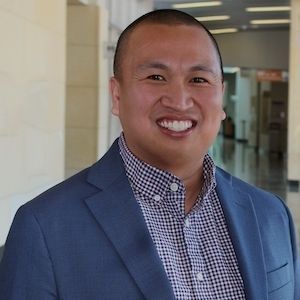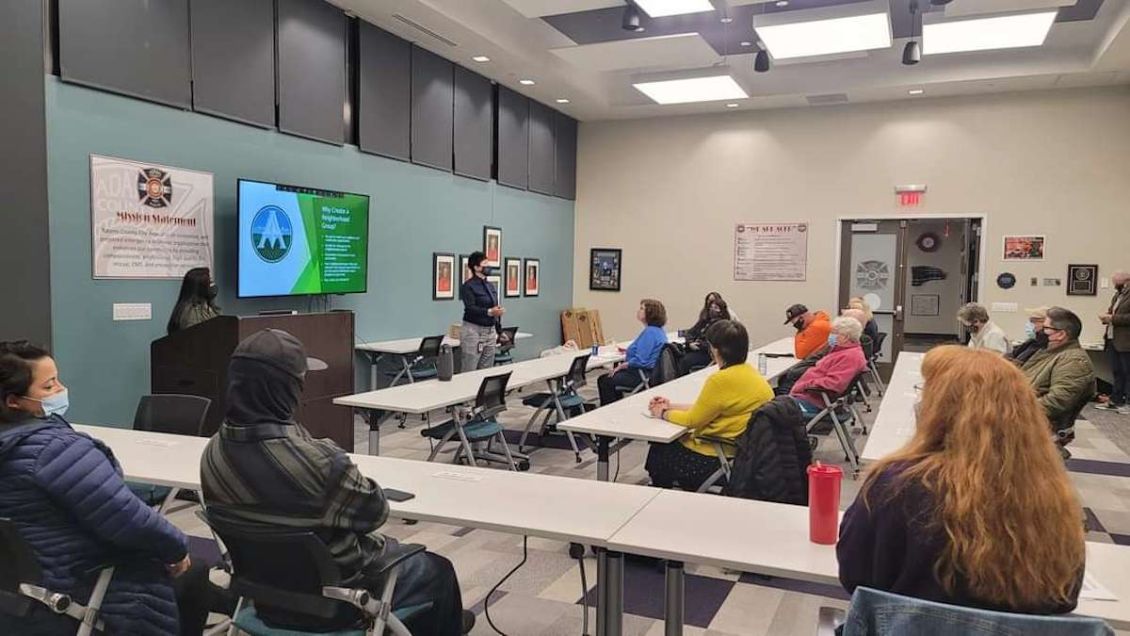In Colorado, the Adams County’s Community Safety and Well-Being (CSWB) Department combines multiple, intersecting areas of county government to proactively serve their community.
The department collaborates with other municipal partners and community members in service of a resident-centered approach to bettering systems and neighborhoods. Inherent to this work is CSWB’s focus on improving the well-being of residents and communities through a holistic, equity-driven approach.
As part of this work, CSWB recently invited Enterprise and our partners to present When Zip Code Doesn’t Matter to all Department staff. This project seeks to better understand connections between race, residential segregation, access to homeownership and public safety, in order to pave a path forward to a time When Zip Code Doesn’t Matter—anymore.
When Zip Code Doesn't Matter is a collaboration of Enterprise, Habitat for Humanity of Metro Denver and the Neighborhood Development Collaborative, with generous funding from Bank of America.
We asked Paolo Diaz, CSWB manager, a series of questions to learn more about their departmental work and why their team participated in this training.
Enterprise: Tell us about the Community Safety and Well-Being Department of Adams County?

Paolo Diaz: Adams County’s CSWB Department was first formed in Spring 2019 and includes our Community Corrections, Emergency Management, Neighborhood Services (Code Compliance, Animal Management and Graffiti Removal) and Poverty and Homelessness divisions. We all seem to serve unique functions, but our entire department is aligned to utilize data to improve systems, elevate people and strengthen neighborhoods.
We work with our municipal partners, community organizations, and our residents to improve their experiences and quality of life. Our department has prioritized seeking staff with lived experience in poverty, homelessness, and the criminal justice system. We believe these individuals have incredibly valuable expertise on what we, as a local government, can do.
E: I know your department prioritizes advancing racial equity. Can you share more about your goals for this work?
PD: Our department is focused on equity as a whole and is committed to our pillars to improve systems, elevate people, and strengthen neighborhoods.
A lot of the programs and initiatives that come from our department are with the intent of equity for our residents. For example, we launched our Tool Shed program so that residents in unincorporated Adams County have free access to yard and gardening tools.
Our homelessness outreach team, including those from our municipal partners, have done an incredible job of getting to know our most vulnerable population and connecting them to resources that can help elevate them, such as support obtaining housing, health services, identification, stimulus checks, phones, and connecting them to our day works program.
Our Mobile Home Initiative launched during the pandemic to provide housing stability for residents living in mobile home parks, which includes Know Your Rights clinics and support navigating the Department of Local Affairs’ Mobile Home Park Oversight Program through the Colorado Poverty Law Project.
As the 2020 Census revealed, the majority of Adams County residents are people of color. Economic inequity has always existed, but the public health crisis has widened the racial-poverty gap for our residents. Residents of color are less likely to have health insurance and more likely to report unemployment and poor mental health.
This contributes to the rate of people of color living paycheck-to paycheck. Coloradoans of color are particularly likely to not have enough savings to get through a financial emergency. Unfortunately, the loss of wages due to the pandemic has tipped many residents of color into housing instability.
E: Last fall, your department attended When Zip Code Doesn’t Matter to learn more about the connections between land use, the racial wealth gap and policing. Why is this type of conversation important for your team?
PD: Our department director, Matt Rivera, believes in bringing the team together on learning opportunities such as these to broaden how we think, grow, and potentially inform our work. This is especially important because we are a forward-facing department.
What differentiates us from other county departments is typically, residents come to most county departments for services. CSWB goes out to the community to interface with residents, whether it’s performing outreach or neighborhood services calls.
It’s important for us to provide our staff with awareness that could help them become more empathetic and connect better with residents.
E: Did you learn anything new during the event?
PD: Speaking for me personally, it was good to really expand on the conversation of homeownership, especially as my team focuses on poverty and homelessness. We often hear about how homeownership is a means for wealth, but for many low-income families, the idea of homeownership hasn’t seemed like a reality.
Many barriers have been put in front of them that spans generations that is too challenging for many to overcome. We often hear about the exorbitant cost of housing and how wages have not kept up with the increasing cost of housing, and When Zip Code Doesn’t Matter covered that.
In Adams County, for example, rent on a two-bedroom apartment would require more than two and a half times of minimum wage.
E: What topics or ideas from the event do you hope to incorporate in your future work?
PD: As we continue to work within our neighborhoods, especially as we dive into the race equity work, utilizing the Justice Map could be a great resource as we outreach to our neighborhoods. The event also reinforced for us to continue to pursue Housing First, re-entry, and mental health solutions.
E: Are there any other initiatives you’d like to tell us about?
PD: Adams County is currently hiring for a race equity coordinator, who will work with external partners to improve our reach and focus on Adams County’s residents and communities of color, including the creation and adaptation of programs and programmatic materials for various racial, ethnic, and linguistic groups and the equitable distribution of information.
They will also help close the racial-poverty gap widened by the pandemic and strengthen our relationships with marginalized racial and ethnic communities. This includes understanding and developing initiatives that address lack of access to resources, services, and opportunities in communities of color, as well as connecting residents directly to such resources and services.
E: Finally, one question we like to ask our partners is: How would you define home?
PD: I would define home as a place where someone lives, and however they define home.
I was touring a site out of state and the founder of that location said something that resonated with me. He said, “the opposite of homelessness is not housing; it’s community.” It really did stress the point that individuals need community and support.
When it comes to homelessness, it’s easy for us to think that an individual will move where there are services, but we have found that many of them stay in their community because there is still something that ties them there, such as work, people or just familiar surroundings.
I had an individual who was being asked to move his tent and he didn’t know where to go because the reason he stayed there was because it was close to the place where he worked. That was his home and his community.
It explains why more than 67% of those experiencing homelessness in Adams County stated that their last permanent resident was in Adams County despite having more services and resources in Denver. It also forces us to take ownership in developing solutions because these are our residents living in our community.
The modules of When Zip Code Doesn’t Matter are available online for individual learning. If your organization is interested in a free, interactive 90-minute learning session, please contact Christi Smith.
Please include your name, email, group name, number of attendees anticipated, time frame you’d like to schedule training, and why is your group interested in hosting a learning session.

